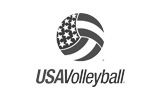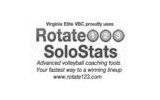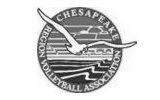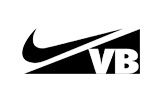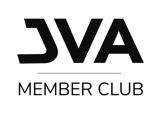Joining a Volleyball Club: Part 3- What Does a Club Look For in a Player?
October 18, 2019 Author: Dave Sears, 14's Assistant Coach
In the first to part of this series we examined the process for joining a volleyball club. In the second part of this series we discussed how to evaluate a club. This last section is identifying key characteristics that a club looks at when selecting a player.
What does a club look for in a player?
Volleyball is an explosive sport. Athletes today are bigger, stronger and quicker than ever before. The skill is trying to determine the ceiling an athlete has. Ceiling decisions are usually made at the younger age groups. Clubs are always trying to evaluate what an athlete can do for the club now at 13s or 14s and what they could do for the club in 2 years. Will they be part of the club in two years.? An athlete with a higher ceiling will get selected over an athlete with a lower ceiling. Parents are often shocked when clubs take a very raw athlete over a player who has better skills at the time of tryouts. The answer is the club made a ceiling decision. From a club perspective, they want to keep a core group of athletes moving from age group to age group. If a club does not select well, they lose all the time invested in a player. Clubs like to build a player’s skills year to year. This way they do not have to go backwards and slow the learning process for other players.
There are no set guidelines for what a club will look at to determine which players they will select. Their goal is to create a balanced team consisting of solid players and some ‘project’ players who have a high ceiling. The main criteria will fall within these broad areas: jump, height, arm speed, quickness, coachability, desire/heart/attitude/effort, volleyball intelligence, academics, finances, and parent(s). A club or coach may emphasize any or all of these broad areas when selecting a team.
Jump: Jump is the first area a coach will look at. You will hear coaches ask: ‘what height does a player play at?’. This means that a shorter player who plays at 9’7” is more valuable than a player who is 5’10” who only plays at 9’0”. Parents often come into gyms and state ‘You only take tall players.’ For the most part that is true, but clubs actually look at where an athlete is playing above the net when making a decision. At major colleges they are looking for players that touch well over 10 feet.
Height: Volleyball gravitates to tall players. In volleyball the adage that coaches live by is ‘You cannot teach tall.’ An athlete at 14s who is 5’10” or taller will be immediately looked at. At the younger ages, coaches will look to see if your daughter has had her growth spurt.
Arm Speed: For athletes that are looking to be hitters, it is all about arm speed. Many players, who have come from softball have very fast arm swings from having thrown a softball for years. A lot of times the speed of the arm is just how a person’s body is put together. You see this in baseball pitchers. Some pitchers look so effortless when they throw the ball, and the ball seems to explode out of their hand. Can your daughter’s arm speed get faster? Yes, with proper training from a strength coach. For some athletes, they do not hit the ball hard because they fear the repercussions of making a mistake. At Virginia Elite, we instituted a ‘No Fear’ policy. If a young athlete makes the attempt at trying to do the right thing, but the outcome is not good, we celebrate the attempt not the outcome as the improved outcome will appear sooner.
Quickness: Volleyball is a sport of explosive movements. Reaction time, and quickness to the ball is vital. A setter, for example, needs quickness to react to where the ball is. Many times a coach will tell a player to work on foot speed. Like arm speed, some athletes are faster than others. An athlete can work on the mechanics of speed and can work on body strength. At the younger age groups, we see tall players who have not grown into their bodies and lack physical strength. Legs and arms are going in every direction. Working with a good strength trainer, who designs a program for your daughter that understands the sport of volleyball is critical to improving speed and strength.
Coachability: Every coach wants to be listened too. In your daughter’s volleyball career, she will have any number of coaches. Each will bring something different to your daughter. If your daughter is reluctant to make change or refuses to make a change, she will be viewed as not coachable. It is very frustrating for a coach to see a young lady making the same technique mistake at the end of the season after being coached all season. Athletes need to be willing to make changes, even if it sets them back at the beginning.
Desire/heart/attitude/effort: This is very hard to determine for coaches. College coaches will describe it as a player having ‘sparkle’ or they always seem to pick them out in the gym. These players always seem to do the right thing. It could be encouraging a teammate that is having a bad day. It is cheering for other players even when you are competing for the same spot on the team. It is a positive attitude. It is a willingness to try new things. It is a desire/effort to get every volleyball. It is cheering for the team, when you are not in the game. It is about putting the team above the individual.
Volleyball intelligence: Coaches are looking to see if a player is student of the game. This is especially important in setters. Can they run an offense and set hitters up to be in the most advantageous position to score? Does the setter ‘read’ well to know when to leave from a defensive position to get ready to set? Does the setter know who has a hot hand? For Liberos and defensive specialists, can they read the other team’s offense or anticipate where the serve is going? Do they study the other team’s hitters to see where they tend to hit? For all players, do they know who the weak passers are and can serve them? For hitters, can they see the block and how the defense is set up so they know where to hit?
Academics: College coaches are looking for athletes with good grades. College coaches do not want worry if a player is going to remain eligible during the season. Volleyball is very time consuming. Athletes must prioritize their schedule. Time management is a skill every player must learn. They cannot procrastinate on school projects. Missing practice due to homework, is not a good excuse. At Virginia Elite, we listen to parents when it comes to academics. If the parents say that their daughter needs to get their grades up and has to miss practice or a tournament, we respect that and will accommodate their desires. This may affect playing time.
Finances: Travel sports today are expensive. Volleyball is no different from any other travel sport. There will be travel, hotel and food expenses. Virginia Elite is unique in that we tell you all the costs upfront. This includes hotels and airfares, coach’s stipends, court rental fees, uniforms, and some transportation at tournaments (bus). For the younger age groups (13s and 14s), Virginia Elite requires the players to stay with their parents at away tournaments and is not included in the club fees. Virginia Elite has put up a cost comparison of our costs versus other clubs. Many clubs do not post all their costs, so it is very hard to estimate and compare.
Parents: Parents role in the club is to cheer for their daughters and support the team, get players to and from practice and tournaments and finance the cost. Parents that are constantly complaining, late with payments, or sowing discord on the team will have an effect on their daughter continuing in the club. There is an adage ‘you can’t train parents.’ Volleyball is a small community. Clubs will hear about ‘problem’ families. Given two players with equal ability, a club will take the route of the least drama. It is a very long season, coaches make next to nothing, they invest a lot of time, and having a team ripped apart by drama is just not fun.


